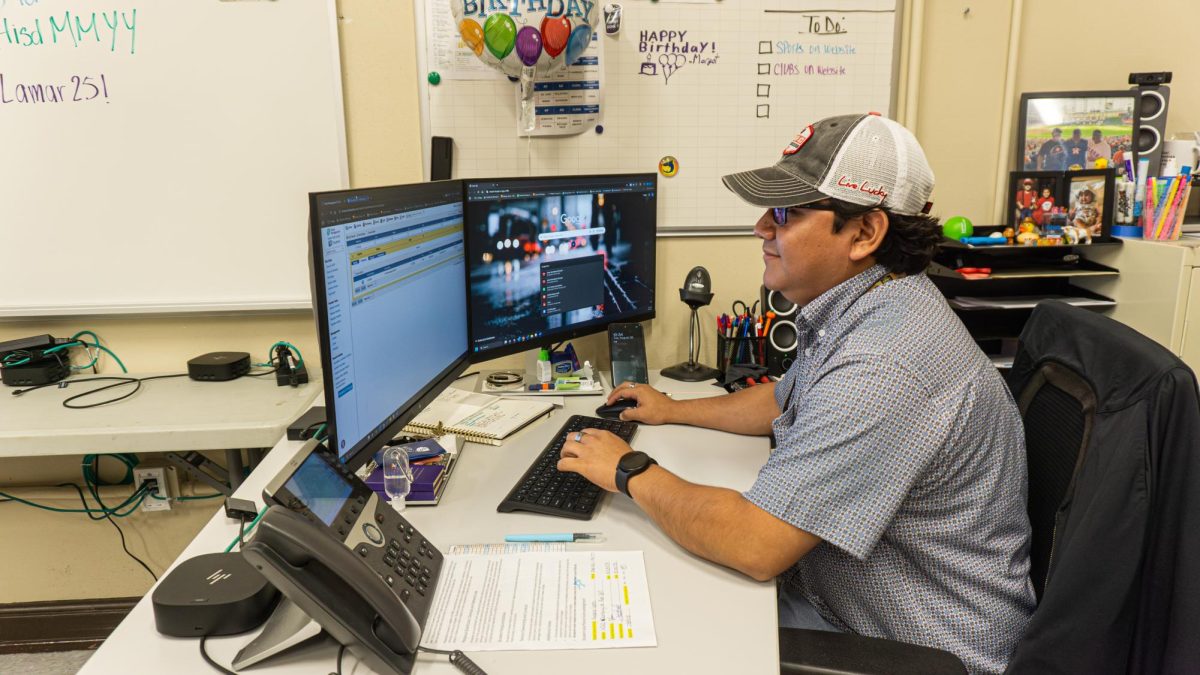Being a student in Texas means being familiar with the new education laws being passed in school districts under Governor Greg Abott. As high school students, it is important that we take note of these changes as they will affect our lives in different ways. This new legislation consists of laws addressing additions and bans with the solemn purpose of increasing academic outcomes and providing a safer, more stable learning environment for Texas students.
Better quality education?
House Bill 1481 requires all public and charter schools to implement a phone ban during school hours. The purpose of this law is to ensure students focus their time on schoolwork instead of virtual distractions, as their slogan “put it away, learn today,” says. Students and parents expressed their concerns with safety as school shootings have increasingly become a problem, especially in the state of Texas.
Parents say so
How much power does parents have over what their children learn in school? Senate Bill 12 and Senate Bill 13 gives parents a voice over their children’s education and what they could be exposed to under the care of the school. Arguments on whether the law protects students’ innocence or is creating a disadvantage have sprouted after the bills’ passing. “SB 12 isn’t about protecting children or parental rights. It’s about silencing them. It’s about erasing families, banning truth, and turning our classrooms into closets,” stated State Rep. Jessica González (D-Dallas) states. Some parents on the other hand, support this law, with many voicing their opinions about their children being taught ideas that are driven away from family beliefs and morals. The question still stands where do we draw the line on what is being taught to kids and if should there even be a line?
Religion in schools
Religion has always been a major part of society, as it shapes an outline for community, unity, and culture. Senate Bill 10 strings the ideology further by requiring states to display the Ten Commandments in every classroom at the size 16 by 20 inches, in a legible font with all required text. Some people feel like this is a good thing, stating whether a person is religious or not, learning and seeing those commandments sets a good historical and moral reminder for the students. While others at disagreement voice the opinions of how the state and the church should remain separate as protected under the First Amendment, which states, “Congress shall make no law respecting an establishment of religion or prohibiting the free exercise thereof.”
Parents say so
How much power does parents have over what their children learn in school? Senate Bill 12 and Senate Bill 13 gives parents a voice over their children’s education and what they could be exposed to under the care of the school. Arguments on whether the law protects students’ innocence or is creating a disadvantage have sprouted after the bills’ passing. “SB 12 isn’t about protecting children or parental rights. It’s about silencing them. It’s about erasing families, banning truth, and turning our classrooms into closets,” stated State Rep. Jessica González (D-Dallas) states. Some parents on the other hand, support this law, with many voicing their opinions about their children being taught ideas that are driven away from family beliefs and morals. The question still stands where do we draw the line on what is being taught to kids and if should there even be a line?
Religion in schools
Religion has always been a major part of society, as it shapes an outline for community, unity, and culture. Senate Bill 10 strings the ideology further by requiring states to display the Ten Commandments in every classroom at the size 16 by 20 inches, in a legible font with all required text. Some people feel like this is a good thing, stating whether a person is religious or not, learning and seeing those commandments sets a good historical and moral reminder for the students. While others at disagreement voice the opinions of how the state and the church should remain separate as protected under the First Amendment, which states, “Congress shall make no law respecting an establishment of religion or prohibiting the free exercise thereof.”
Senate Bill 965 allows students and teachers to participate in any religious reading or praying on school grounds. This is not limited to any religion, and it does not require participation.
You Can’t Eat That
It’s important to know what goes in your body and the type of effects it has on us Senate Bill 314 removes any ingredients that could possibly be addictive . Brominated vegetable oil, various food dyes such as red 3, red 40, yellow 5, and caramel color are some variants being banned in school lunches to reduce long term health issues caused by those ingredients, commonly found flavored cereal, macaroni and cheese .
MONEY MONEY MONEYYYY!
Money is a popular topic, but a lot of times people make decisions that cause them to live in deep debt. The government took it into their own hands to teach the youth on financial literacy in hopes of students graduating with practical financial skills they will use for the rest of their life. As great as those it sounds, the flaws arise as upcoming seniors will scramble to fit financial literacy into their schedule as they only have that year to take it to graduate.
House Bill 2 also 2 gives schools $8.5 billion in funds for teacher and staff salaries, educator preparation, special education, safety requirements and early childhood learning in hopes to aid issues such as underpaid teachers and support schools improve learning space for students.
Change is the one thing in life that is constant. Sometimes it may be exciting about it and other times we dread these new changes. But the thing about change is that we never really know the impact it will have on us personally or as a society. As a school we should continue voicing our concerns and celebrating the wins, but don’t forget to be open to new ideas and continue to build the culture here together.




























